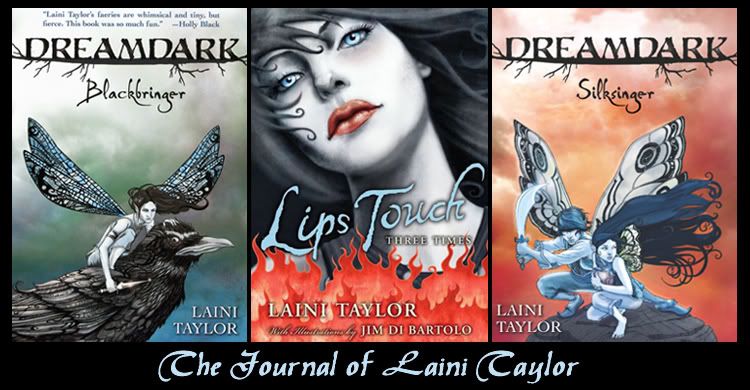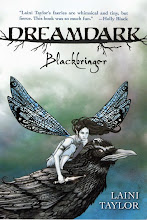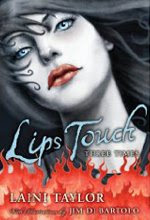
I have been looking forward to
The Golden Compass film for several years now. I was not filled with terror that it would be awful. I was anticipating it like a kid anticipates Christmas morning, thinking they might not get
everything they want, but pretty positive it will be awesome.
It was not awesome.
Now that my grief has subsided, I’m [almost] glad it was not awesome, because it creates a perfect case study of good storytelling vs. bad storytelling.
It shows how two people can take the exact same story elements and one of them (Pullman) can craft them into something compelling and heartbreaking and filled with suspense, and the other (Weitz) can rob them of all drama and meaning, make you not care at all, and worse, make you not even know what you’re supposed to be caring
about. This is a real opportunity for writers to examine some technical aspects of storytelling. Here’s your mission, should you choose to accept:
1.) Read
The Golden Compass2.) See
The Golden Compass3.) Take mental notes; examine what was done in each case, and how the filmmaker managed to go so horribly horribly astray.
As a writer, you are the god of your book. When someone reads it, they are consenting, for a short time, to let you reach inside their mind and tell them what to care about, what to wonder about, what to fear, what to hope for. You write the story, and in it you are planting suble sign-posts all along the way to guide readers through it, and to make them feel how you wish them to feel, make them wonder what you wish them to wonder, etc. Every step of the way, their feelings are putty in your hands. That’s the contract between writer and reader.
The writer tells the reader what to care about, and then they do their best to
make them care. If it’s a good book, this is all so seamless and subtle you never once feel the writer’s hand in your mind, guiding you. If it’s poorly done, you feel yanked around and befuddled, and you don’t care at all what happens -- you might not even understand what it is you’re supposed to care about!
In my opinion, Chris Weitz, the writer/director, failed in this most fundamental way. He did not make it clear what to care about and what to hope for and fear. In the book -- do you remember? The central question was: What are the Gobblers doing to the kids? And each step toward the answer was a layer peeled back to revelation after devastating revelation. And when you finally found out what they were doing. . . It was a heart-breaking -- nay, a heart-
shattering scene.
[Spoiler Alert (sort of, but not really)]
When Lyra found that little boy in the shed clutching a dried fish and finally understood what the Gobblers were doing. . . it still gives me chills to think about. In the movie, this moment had no power because you hadn’t been set up to wonder what the Gobblers were doing. It was just this ice adventure with some shadowy villains and vague nefarious things going on, but the reader/viewer’s emotional path through the story was not mapped out by the filmmaker.
This aspect of craft is not something I thought about until I was deep into writing my first novel. I had never really thought about how much of writing is crafting the reader's emotional journey through the pages, how much thought and work goes into making sure they're thinking and feeling just what you want them to, just when you need them to. You have to a) give the reader something clear to care about and hope for; b) conversely, give them a bad alternative to fear. And then there’s c) giving them something to wonder about so they keep turning the pages. What these things are will change over the course of a novel. In The Golden Compass (book), for example, after the revelations at Bolvanger, there are new things that have already been put into place for you to care/wonder about and fear.
When I’m writing, I
am asking myself, “Now, in this scene, what do I want the reader to be thinking and wondering and feeling and fearing?” I don’t know how much other writers concsciously think of this -- I am curious about it, though. I would say that in early drafts, I am not thinking it so clearly. It can come fairly late in the writing that I really know myself what the central issues are, and then in revisions I’m trying to sharpen the story to a point, to direct the reader’s mind where I want it to go, hopefully, without them feeling me doing it.
It’s hard -- it’s basically like you’re carrying somebody along in the palm of your hand, trying to make them forget you’re there. I have a lot to learn about it, and many books ahead of me in which to figure out the craft of this. Chris Weitz has a long way to go too.
Man, I could go on and on about this, but I won’t. I just think this is such a brilliant opportunity for writers to see “what to do” vs. “what not to do” -- if I taught writing, I would incorporate this into my curriculum. There are many other examples of that sort of negligence throughout this movie. It kills me, because it was so unnecessary. They had the money for a fabulous cast (I loved Lyra) and gorgeous design; why not get a decent screenplay? That screenplay was AWFUL.
Never ever have I been so painfully conscious of being fed exposition through dialogue. Every exchange between characters felt like being bashed on the head by an exposition hammer. The characters were always saying things they had no way of knowing, just so the film could let the viewers know what they needed to know. AWFUL! I kept thinking, “Now, how did she know that?” when Lyra would make a massive intuitive leap. God, it makes me so MAD.
Oh yeah, and the “golden compass” itself -- it failed to become a crucial element to the plot. Yeah, Lyra used it a few times, but it could have been cut entirely out of the plot and it wouldn’t have mattered at all. The magic and mystery of it, and Lyra’s extraordinary ability to read it: lost. Utterly lost.
And, everything felt so rushed and smashed together. There was no space around the important moments. Just this barrelling forward, trying to get it done. In Fellowship of the Ring, remember the loss of Gandalf? That was so beautifully, perfectly crafted. It’s imprinted in my mind -- the aftermath of it when you’re left in the silent, shocked grief of the characters and you feel like you’re there, and you’re staggering and reeling too. I have a whole new level of appreciation for what Peter Jackson did after seeing The Golden Compass.
What Chris Weitz would have done with The Lord of the Rings, it makes me shudder to think! So, New Line Pictures, you had better get your act together and get Peter Jackson to do The Hobbit. Or I will smite you.
 One for Alexandra:
One for Alexandra: And one for this little birdy, who was destined for the top of my mom's stocking (I did not make the bird, just the scarf):
And one for this little birdy, who was destined for the top of my mom's stocking (I did not make the bird, just the scarf):
 This one for my sister, whose two favorite things are wine and serpents. Jim drew it. LOVE it. See what the happy snakey ate for dinner?
This one for my sister, whose two favorite things are wine and serpents. Jim drew it. LOVE it. See what the happy snakey ate for dinner?
 And for Chary:
And for Chary:
 And mine, with a book worm and the Anthropologie knitting girl, see you can see her knitting basket in the bottom:
And mine, with a book worm and the Anthropologie knitting girl, see you can see her knitting basket in the bottom: And my mom's, with her scarfy bird. So cute!
And my mom's, with her scarfy bird. So cute!






















































